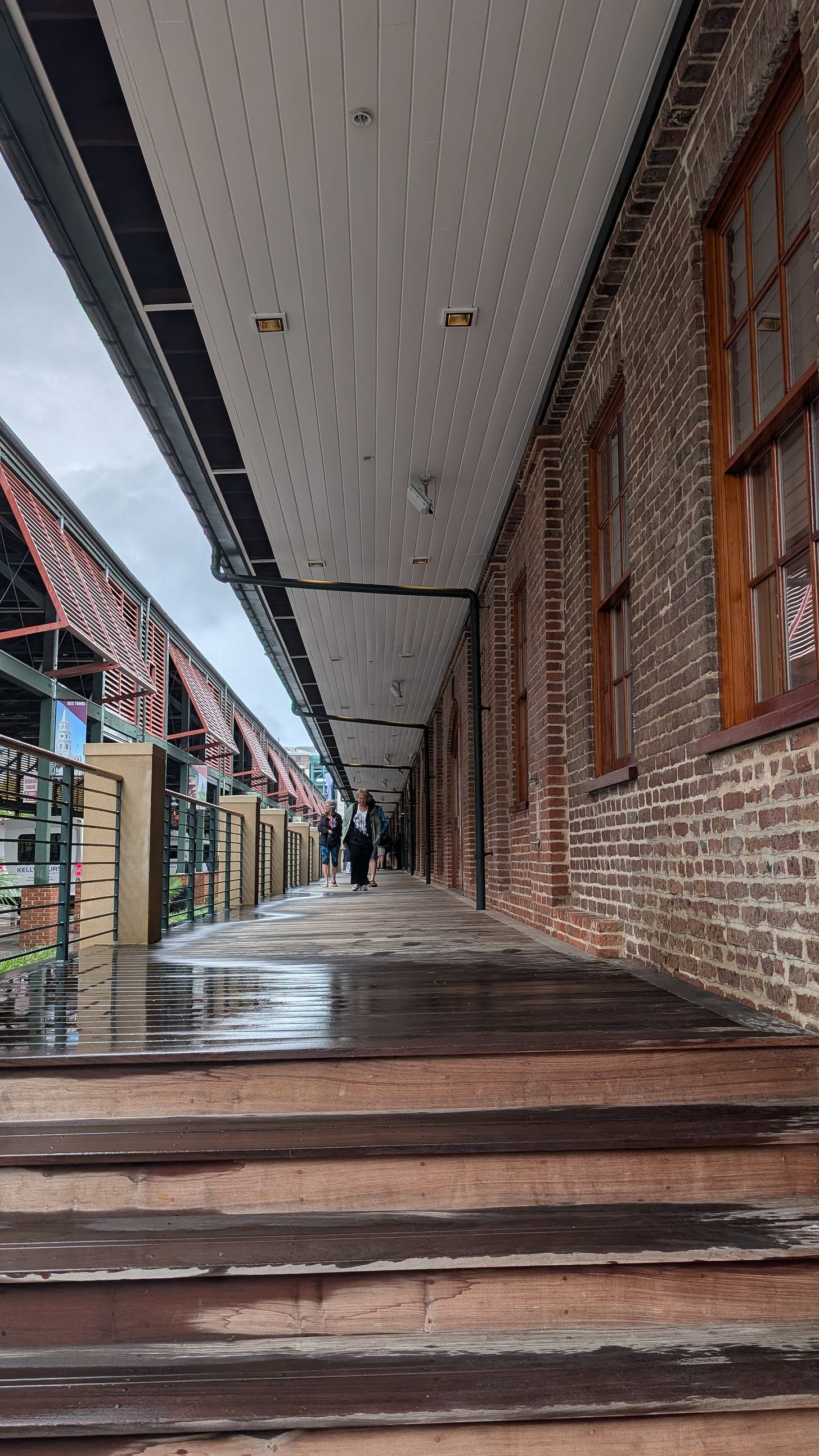
Charleston was our last stop before arriving in Durham, NC—the place we now call home. We had heard so much about the city over the years: the beauty, the food, the history. But as we drove in, something felt...off. We expected to feel more of a Black presence, more connection to the deep cultural and historical roots we know are there. Instead, we were met with an overwhelming whiteness that lingered in the air like a ghost. The Charleston we had been told about—mostly by white folks—was not the Charleston we encountered.
We joined a tour that we hoped would offer deep historical insight, but it turned out to be more symbolic than grounded. Our guide claimed that Black people were the true Israelites and shared a lot of personal interpretations—some fascinating, some confusing, some unhelpfully conspiratorial. He pointed out what seemed like Halloween store skeletons half-buried in the ground, calling them real bones. He told us lights hanging from chains were soul catchers. While we understand the symbolism he was stating and have deep respect for reality he lives in, we left the tour craving something more grounded.
Still, what he said about Charleston being a favorite city of wealthy white people stuck with us. That part felt real. Charleston is draped in antebellum beauty, and yet that beauty was built on horror: breeding houses for Black women, hanging trees for Black bodies, underground prisons beneath the homes of the elite. This is a place where old money still lives, and we couldn’t help but wonder how many people come here to celebrate a version of history that conveniently forgets who paid for their ancestors’ comfort.
Charleston reminded us that you can’t separate antebellum charm from the brutal economy of slavery. The wealth was never accidental. It was extracted—from our people. That truth weighed heavy on us.
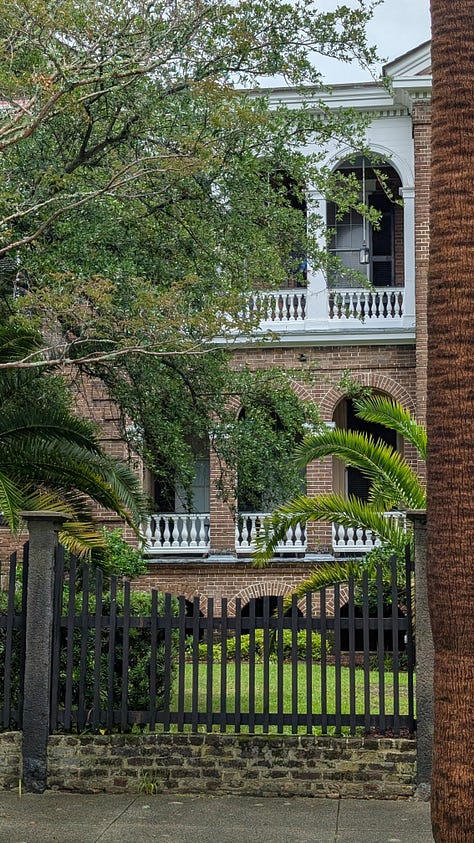
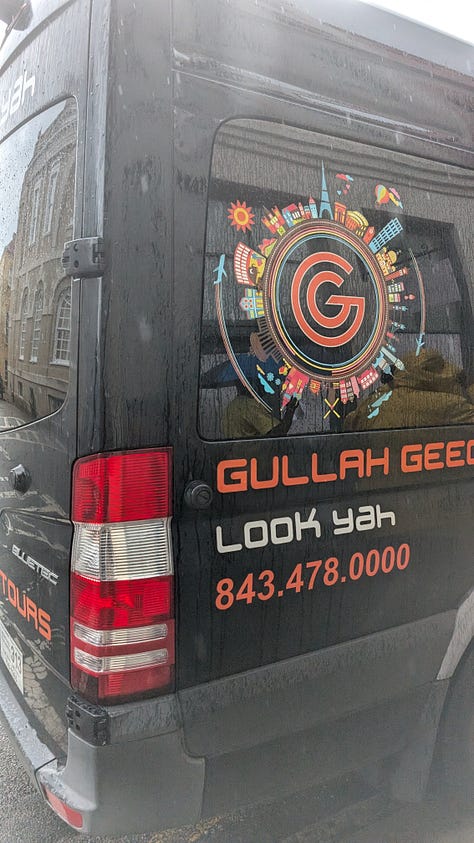
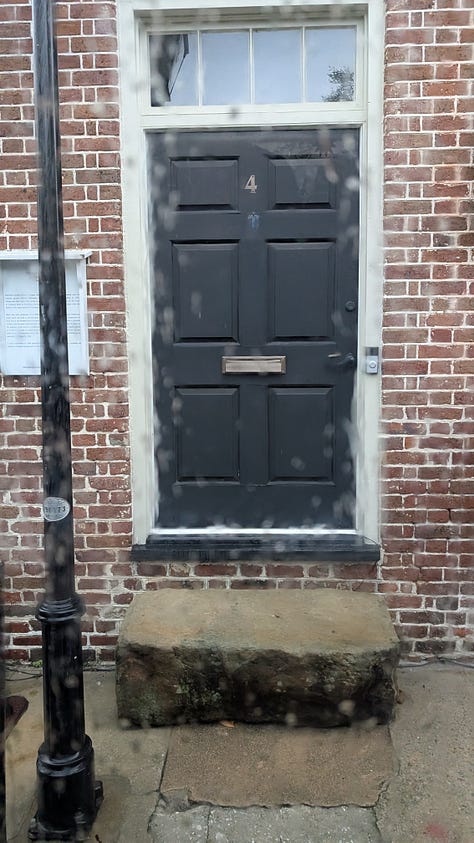
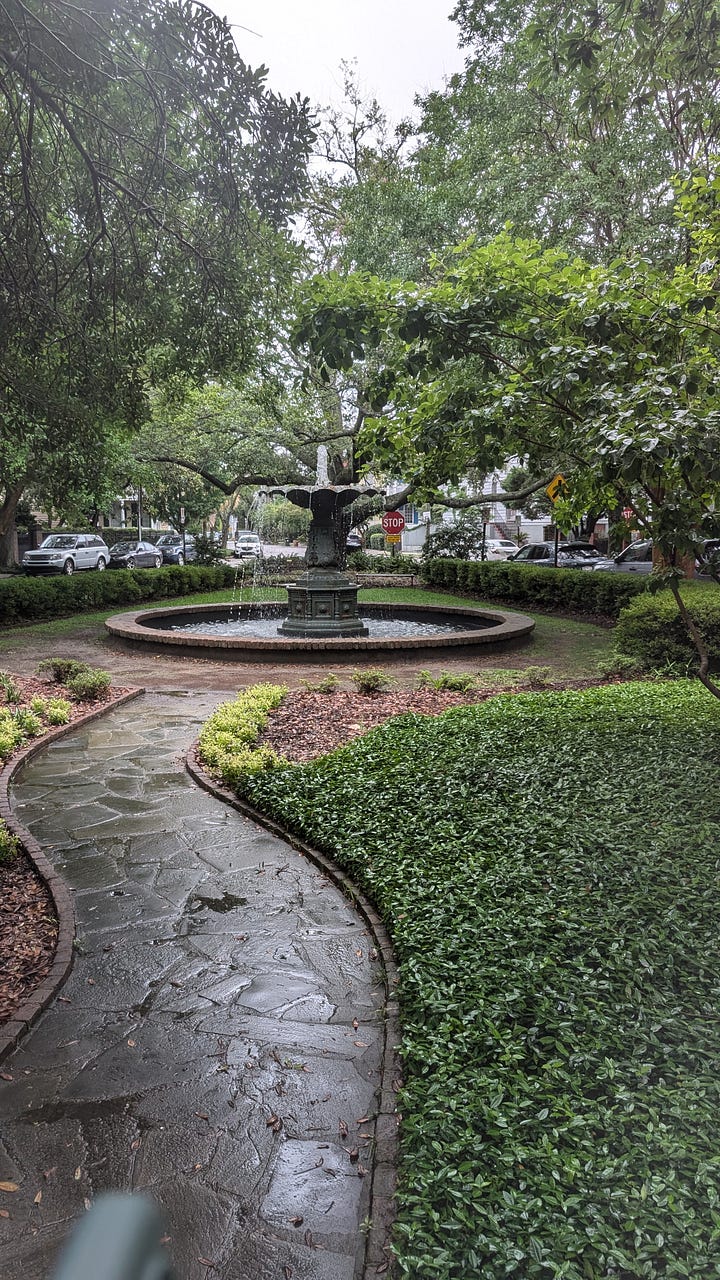
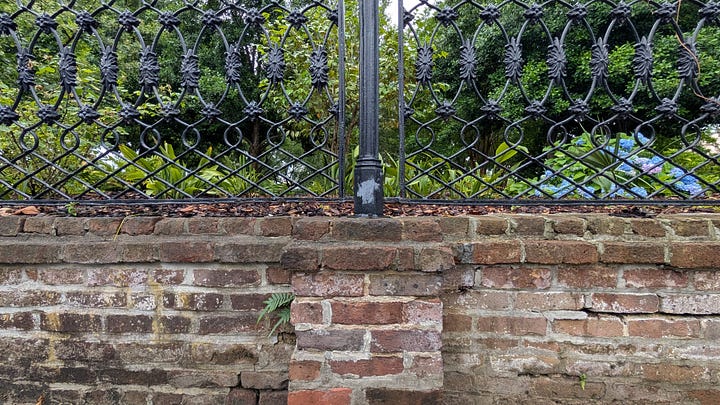
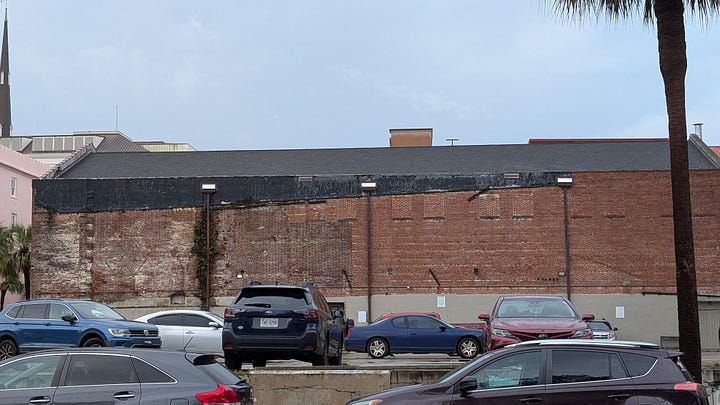
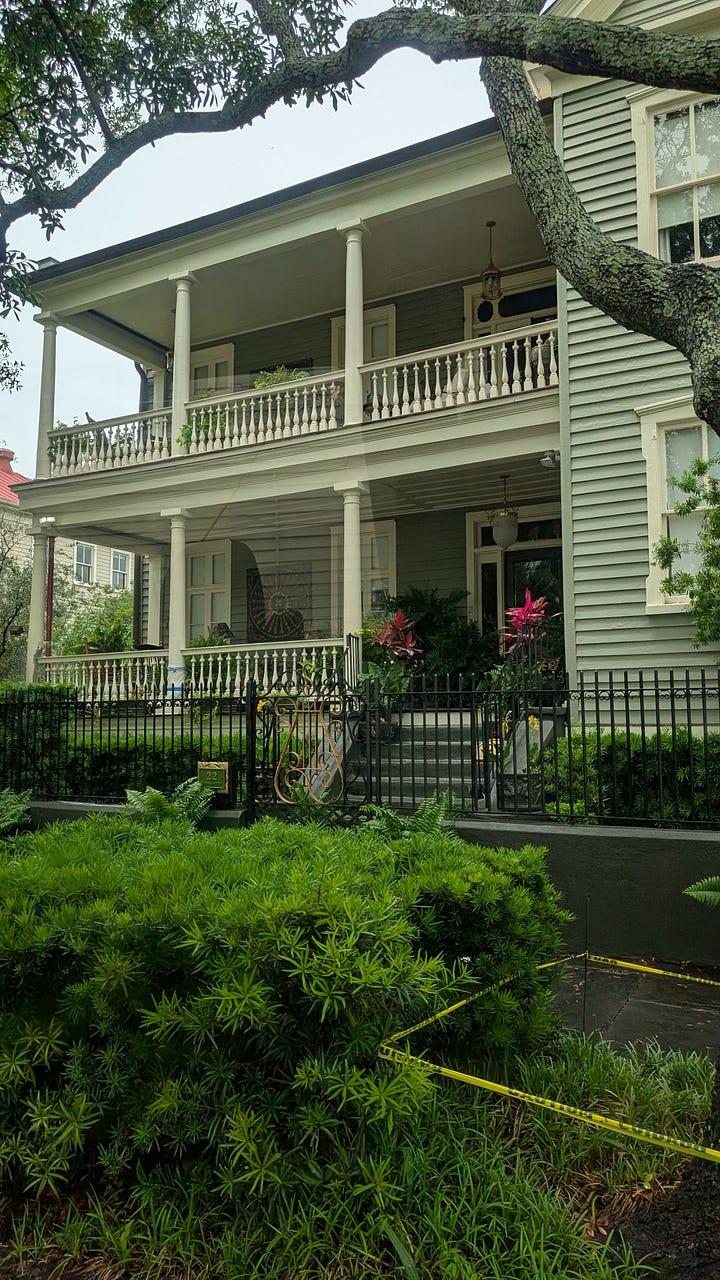
But there was redemption too.
The International African American Museum was powerful. One exhibit on the Gullah Geechee people especially moved us. Their culture has preserved so many West African practices, including a tradition called “seeking,” where young people spend days in silence and stillness in the woods to connect with the divine. It affirmed for us that contemplation and spiritual depth are not foreign to our heritage—they are central to it.
So often, Black spirituality is associated only with noise, praise, and energy. But in Charleston, through the Gullah Geechee witness, we were reminded that stillness, silence, and seeking are also part of who we are. It was a grace-filled confirmation—Howard Thurman would’ve smiled.
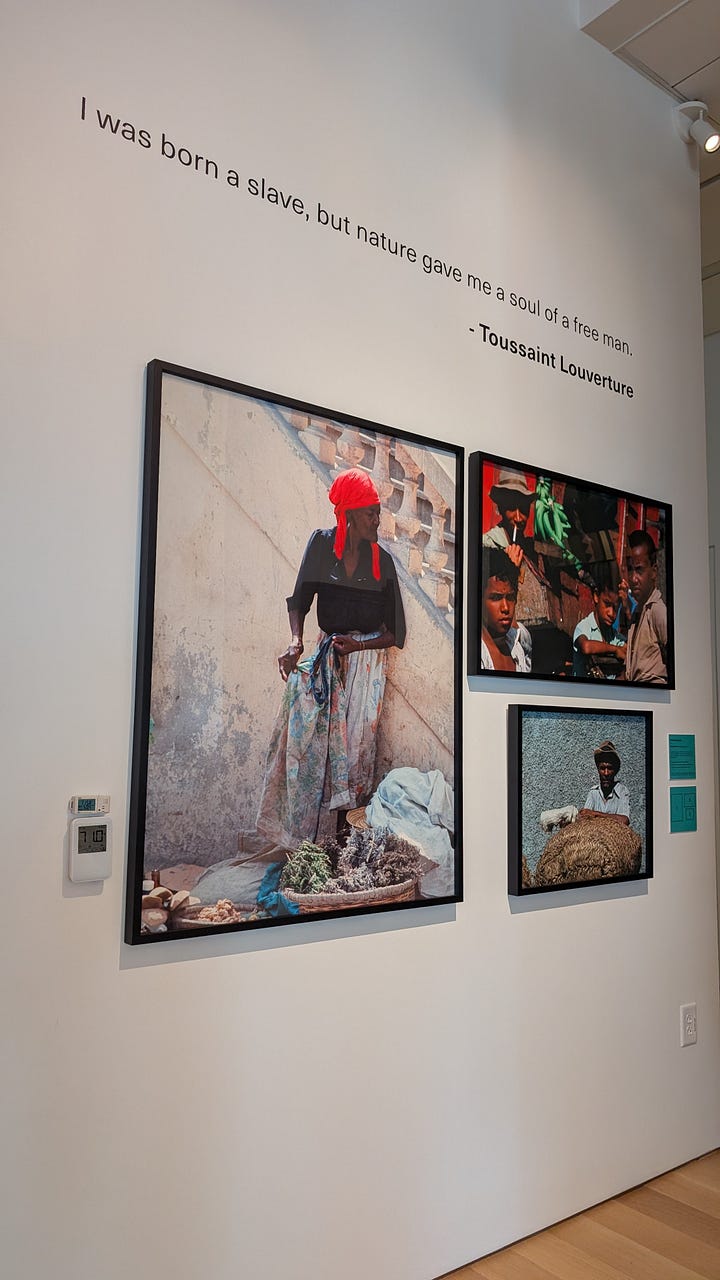
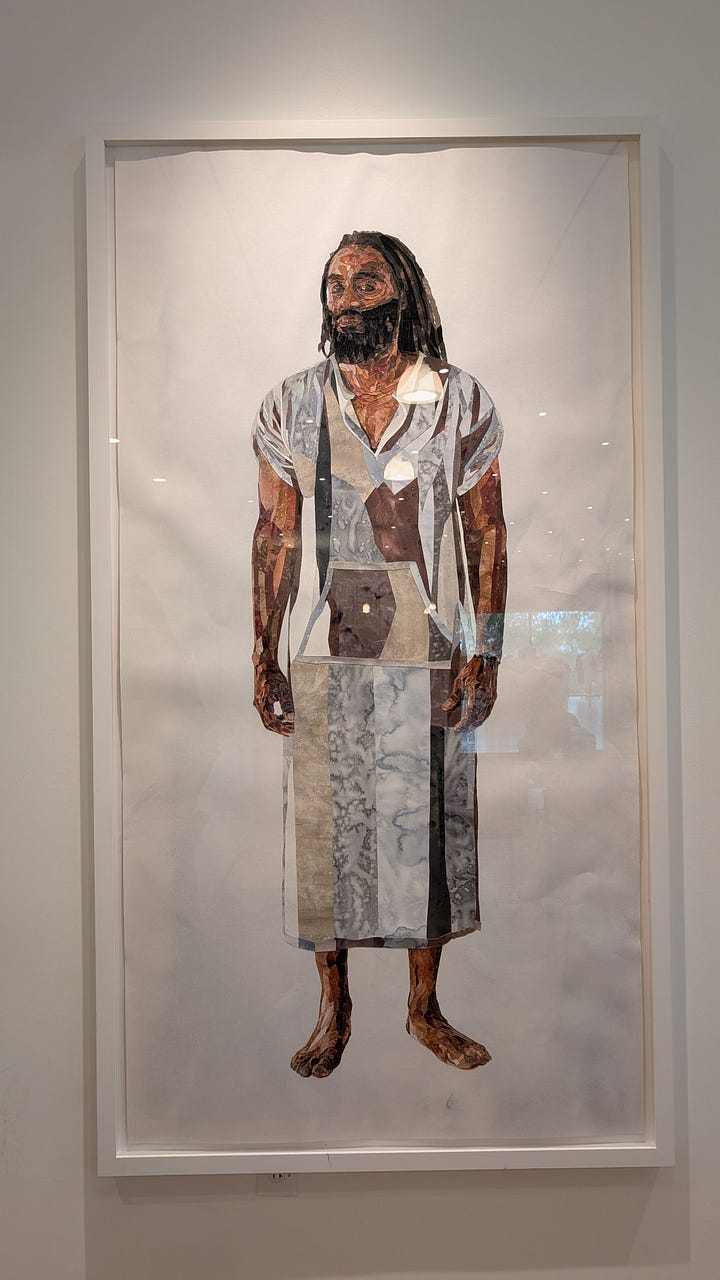
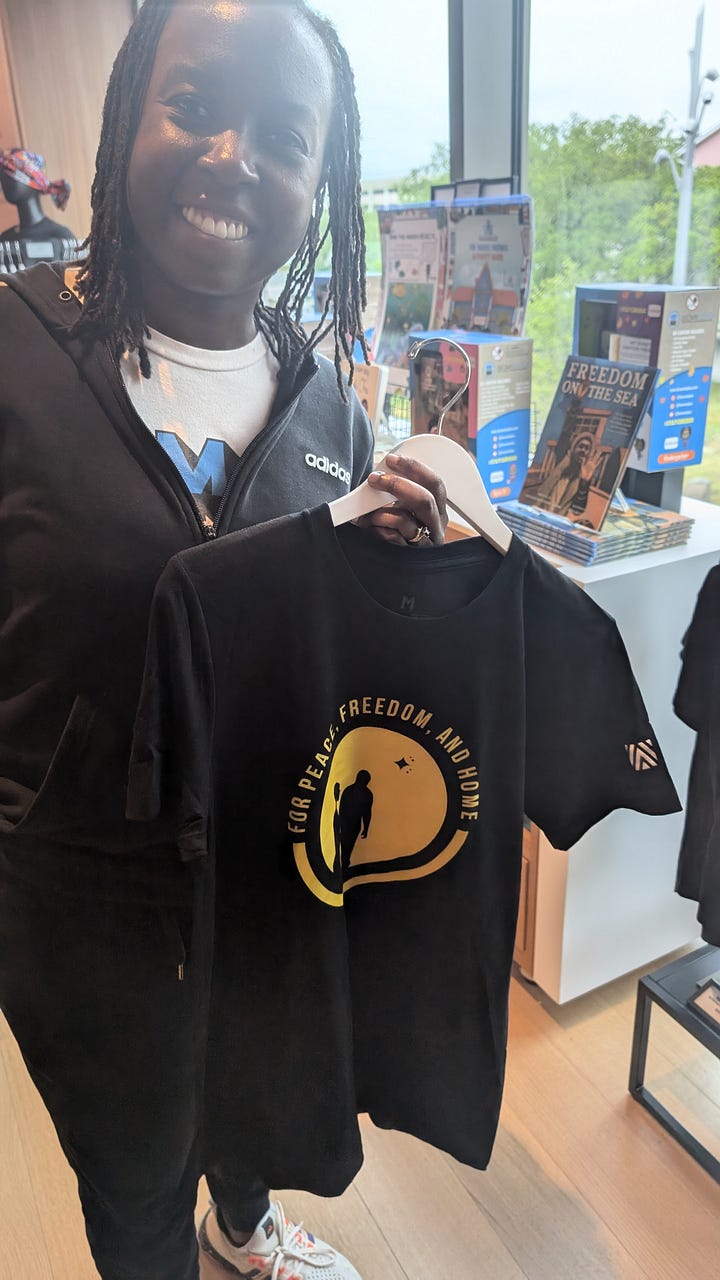
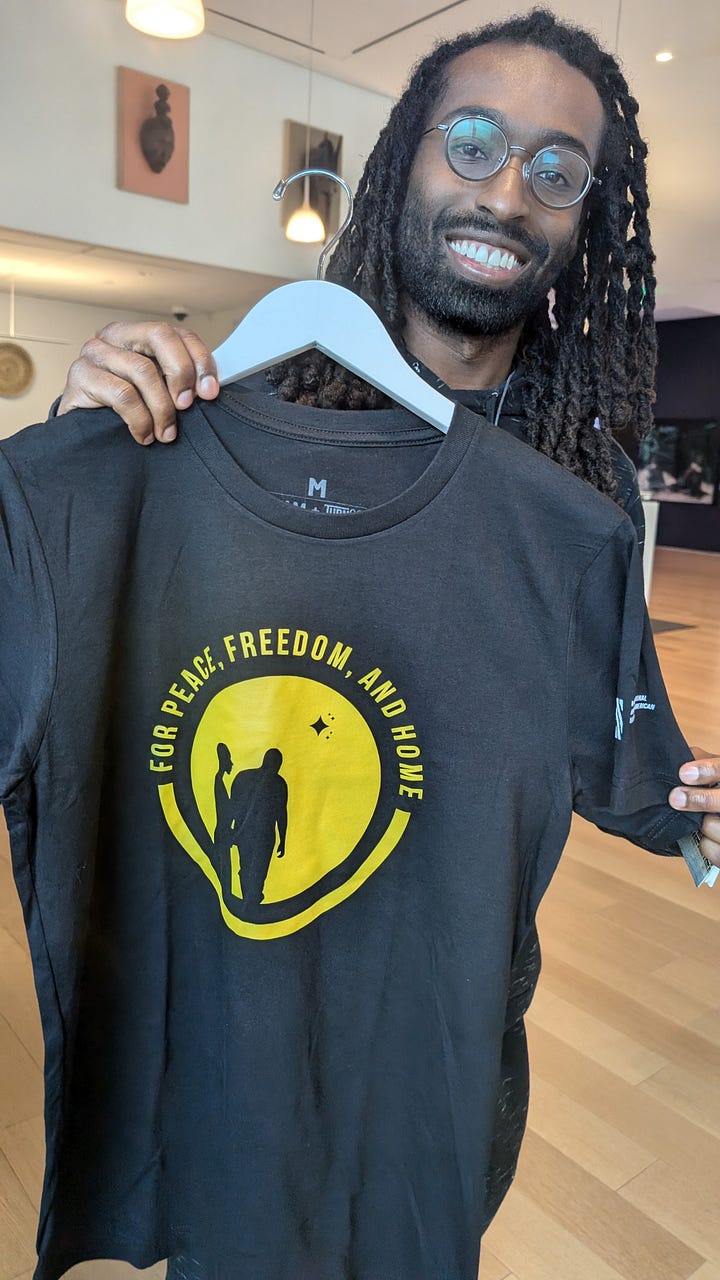
This stop, heavy as it was, also reminded us how deeply symbols shape our world. So much of American culture is built on language and imagery that trace directly back to slavery—even words like “master bedroom” or “picnic” which derives from the idea of “pick a nigg**.” These things don’t just fade; they evolve. And unless we name them, we carry them forward unconsciously.
Charleston helped us see, again, that white supremacy doesn’t disappear—it relocates, mutates, reinvents itself. Like trash exported to other countries, America doesn’t deal with its waste; it just hides it, or burdens someone else with it. That’s true for literal pollution, and it’s true for historical harm. The violence committed against Black bodies didn’t vanish—it lives on in systems, policies, and cultural memory. The nation’s refusal to confront its sin has left us all swimming in the aftermath.
And yet—there was one last moment of joy before we left: the food.
Taste of the Islands, a Caribbean spot tucked into the city, offered one of the best meals of our entire pilgrimage. The okra? The best we’ve ever had. That meal nourished more than our bodies—it was a reminder that our people have always found ways to feed joy, flavor, and celebration into even the most painful places.
Charleston wasn’t what we expected. It was disappointing, haunting, humbling—and somehow still holy. Because it forced us to confront the very things we’re committed to healing. And maybe that’s what final stops are for: not comfort, but clarity.
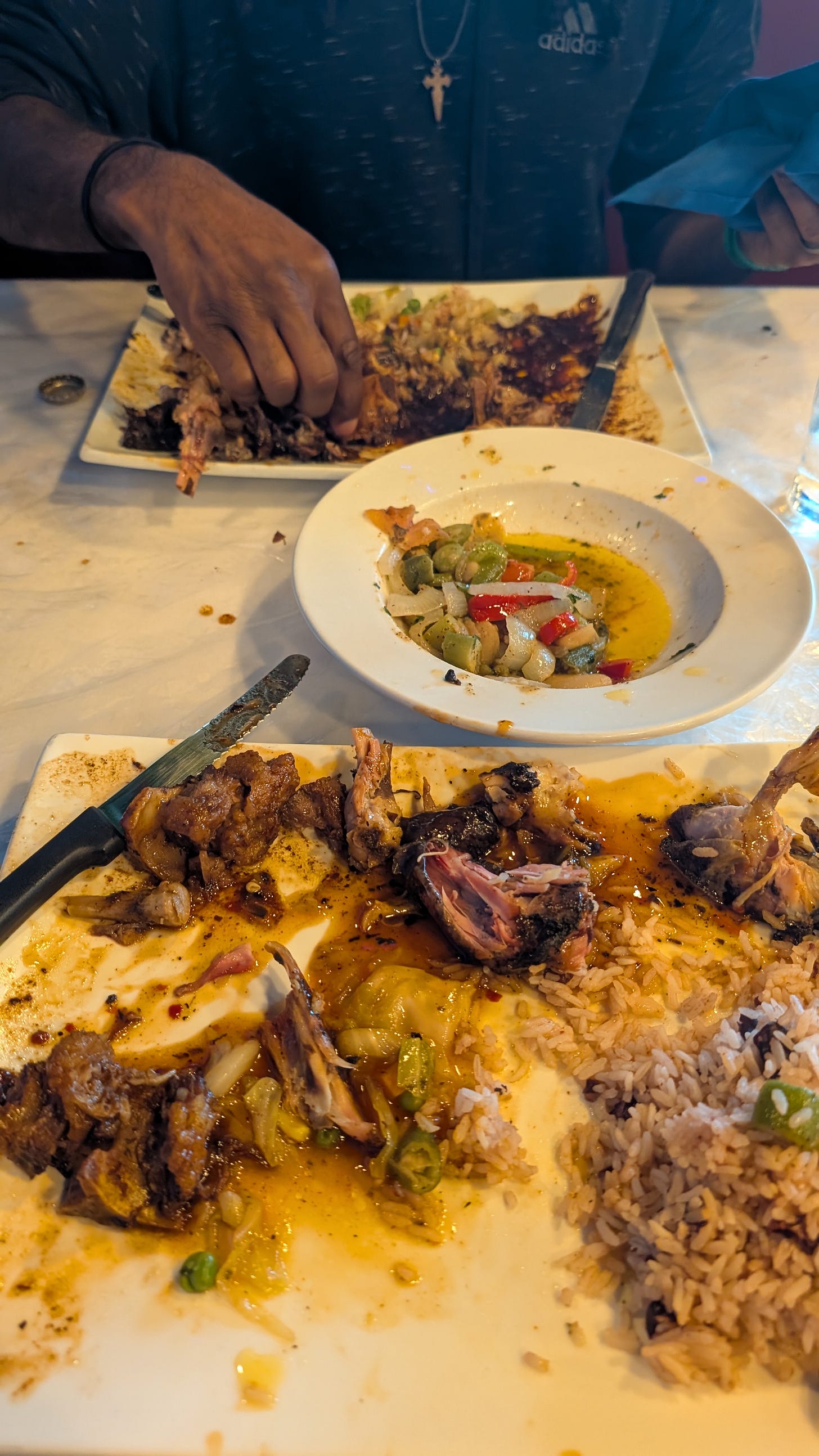
If you’ve been wanting to give to our work with BLK South, now is the perfect time! A generous anonymous donor has offered a $25,000 matching gift to help us meet our needs for the remainder of the year. Every dollar given between now and May 12th will be doubled! Click here to donate.

